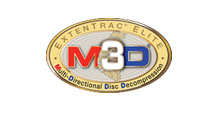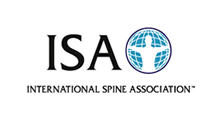
Spine Disorders
|
SIGNS AND SYMPTOMS One of the most common symptoms of
low back (lumbar) radiculopathy is radiating leg pain, a condition often
referred to as sciatica (sciatic neuralgia). Sciatica is characterized by pain
that radiates from your the low back or buttock into the legs and often to the
feet. Lower extremity sensory complaints such as numbness and tingling are more common than
muscle atrophy or weakness. Muscle weakness is usually a sign that the nerve
dysfunction is more severe. Muscle weakness is not always obvious. Early
symptoms of muscle weakness are more often associated with early muscle fatique
during exertion rather than obvious weakness. Mild radiculopathy may
result in the skin becoming more sensitive (hyperesthesia) to touch along the
area innervated by the involved spinal nerve root. Persistent and/or
progressive signs and symptoms of radiculopathy are warning signs that the
degree of neurological compromise is progressing. Individuals
with spinal nerve compromise commonly describe sensory symptoms such as pain,
numbness, tingling in a distribution that corresponds to the level of spinal
involvement. The segmental levels
of sensory innervation are referred to as dermatomes. The sensory portion of the clinical evaluation should
include assessment with pinprick, two-point discrimination, vibratory stimuli,
and joint position testing. Spinal
nerve damage will result in decreased sensation radiating the corresponding area
of skin (dermatome). Spinal nerve
root compromise is often associated with intermittent pain into the involved
extremity. CAUSES There are
many potential causes of spinal nerve root compromise with the intervertebral
foramen (NF). Common causes of
nerve compression include disc bulge, disc herniation, enlargement of the facet
joints, bone spurs, excessive vertebral movement (vertebral instability), as
well as degenerative disc disease with loss of disc height and narrowing of the
IVF. Less common causes of nerve
compromise in the NF include tumor, vein dilation, scar tissue, and hereditary
abnormalities of the bone. More
than one cause may be present. Chemicals
leaking from injured spine tissues such as a degenerative herniated disc may
spread and contact a spinal nerve root inducing inflammation. The chemically-induced inflammation
promotes swelling (edema) and nerve damage. The signs and symptoms are similar to those of a compressed
nerve. A spinal nerve can be compressed and inflamed at the same time. |
















